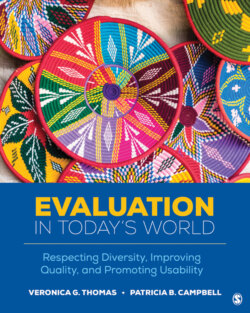Читать книгу Evaluation in Today’s World - Veronica G. Thomas - Страница 134
На сайте Литреса книга снята с продажи.
Ambrose Caliver
ОглавлениеAmbrose Caliver was the first African American to earn a PhD (in 1930) in education from Columbia University. He taught at Fisk University, where he also became the university’s first African American dean in 1927. In 1930, Caliver was appointed to the new position of Senior Specialist in the Education of Negroes in the U.S. Office of Education by President Herbert Hoover. In 1932, when Franklin D. Roosevelt was elected president, Caliver remained in his post and became a member of Roosevelt’s “Black Cabinet,” being the first African American to receive a permanent appointment to the federal service on a professional level. Subsequently, Caliver advanced to other positions within the U.S. Office of Education including (a) a 1946 promotion to specialist of Negro higher education, (b) a 1950 promotion to assistant to the commissioner in the Office of Education, and (c) a 1955 promotion to chief of the adult education section. Because this was the first time African Americans had been employed in the Office of Education, Caliver and his staff were objects of curiosity. They were sometimes tolerated, ignored, and rarely accepted (Wilkens, 1962).
Despite systemic racism, during his 32-year tenure in the U.S. Office of Education (1930–1962), Caliver made significant contributions to federal evaluative inquiry of African American education during the pre-Brown era. He worked tirelessly to raise national awareness about the inequities and disparities in education between Blacks and whites, especially in the rural South, by traveling extensively throughout the country surveying and documenting the funding failures of public schools.
Perhaps Caliver’s most influential works were the national studies that he headed in the 1930s that provided data that illuminated educational inequalities in 20th-century U.S. education. These include the (a) National Survey of Teacher Education, (b) National Survey of Secondary Education, (c) National Survey of the Vocational and Educational Guidance of Negroes, and (d) National Survey of the Higher Education of Negroes. Further, Caliver compiled the national Statistics of the Education of Negroes from 1933 to 1934 and again from 1935 to 1936. Caliver’s work is credited with opening the door to systematic inquiry by African American researchers and evaluators (Hopson & Hood, 2005).
